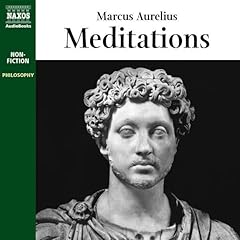
The World as Will And Idea, Volume 1
No se pudo agregar al carrito
Add to Cart failed.
Error al Agregar a Lista de Deseos.
Error al eliminar de la lista de deseos.
Error al añadir a tu biblioteca
Error al seguir el podcast
Error al dejar de seguir el podcast
 Exclusivo para miembros Prime: ¿Nuevo en Audible? Obtén 2 audiolibros gratis con tu prueba.
Exclusivo para miembros Prime: ¿Nuevo en Audible? Obtén 2 audiolibros gratis con tu prueba.Compra ahora por $30.76
-
Narrado por:
-
Leighton Pugh
Schopenhauer was just 30 when his magnum opus, Die Welt als Wille und Vorstellung, a work of considerable learning and innovation of thought, first appeared in 1818.
Much to his chagrin and puzzlement (so convinced was he of its merits), it didn't have an immediate effect on European philosophy, views and culture. It was only decades later that it was recognised as one of the major intellectual landmarks of the 19th century. It proved to be a work that was not only to make an indelible impression on leading figures that followed him closely - Friedrich Nietzsche, Thomas Mann, Sigmund Freud - but also others well into the 20th century, including Carl Jung, Herman Hesse, Jorge Luis Borges, Karl Popper and Samuel Beckett.
What was the Schopenhauerian proposition that made The World as Will and Idea so important? Absorbing views from Kant and Buddhist ideas filtering almost for the first time through Europe, Schopenhauer, putting the concept of God aside, proposed that man is driven by 'a will to life'; desire, craving, wanting - these are the elements that propel him fiercely along life's path, even though it causes him suffering. It is on that basis that Schopenhauer opens the work with the statement 'the world is my idea'. Man perceives the sun and the earth but can relate to them only through his own consciousness. He makes his own world.
Though stamped as a pessimist, and certainly combative as a personality and a writer, Schopenhauer’s work - and The World as Will and Idea - doesn't read darkly. Instead it is rich and challenging, as he surveys broadly philosophy, history, art, literature, music and culture generally. His opinions are strong and testing, his breadth of knowledge invigorating.
The translation recorded here is the classic rendering by R. B. Haldane. However, the numerous literary and philosophical references - Greek, Latin, German, French, Persian, etc - in both the main text and the relevant footnotes are given here in English. Thus Schopenhauer's major work can be absorbed and enjoyed directly - and especially in this intelligent, clear and committed narration by the actor and German scholar Leighton Pugh. Schopenhauer has had a long and continuing influence extending well into the 21st century, and The World as Will and Idea is one of the great stepping-stones of European thought which needs to be listened to. He added a subsequent volume later in his life, but volume 1 is the major work.
Public Domain (P)2017 Ukemi Productions LtdLos oyentes también disfrutaron:




















Las personas que vieron esto también vieron:


















very interesting and monumental work
must read if you interested in philosophy
Se ha producido un error. Vuelve a intentarlo dentro de unos minutos.
Long and difficult, but rewarding
Se ha producido un error. Vuelve a intentarlo dentro de unos minutos.
Performance wise, Leighton Pugh did an outstanding job reading the text! Additionally, the German translation Ukemi used is excellent.
Great Quality Audiobook
Se ha producido un error. Vuelve a intentarlo dentro de unos minutos.
Meaning
Se ha producido un error. Vuelve a intentarlo dentro de unos minutos.
Where does The World as Will And Idea, Volume 1 rank among all the audiobooks you’ve listened to so far?
As a member for more than 10 years , I was always on the look out for it..#1....What other book might you compare The World as Will And Idea, Volume 1 to and why?
The writings of Kant are in the same vein , but Kant is not as accesssible...Have you listened to any of Leighton Pugh’s other performances before? How does this one compare?
No.... but he is D-A-R-N goooood...talk about matching a writer and a performer!!!!If you were to make a film of this book, what would the tag line be?
How Numina Becomes PhenomenaAny additional comments?
If you do not present ".....principle of sufficient reason" to go with this performance , the listener may encounter difficulty...AND especially !!!! YOU MUST MUST MUST PRESENT THE OTHER VOLUME(S)....quickly?There is no philosophy without Schopenhauer!!!!!
Se ha producido un error. Vuelve a intentarlo dentro de unos minutos.


